COLUMBUS DAY
On Monday, October 10, our nation officially celebrates Columbus Day (although the Columbus Day is actually October 12).
Columbus Day? October 12? A National Holiday? Do we actually get the day off? Well, yes and no. Columbus Day is still a national holiday, even though for many it's an obscure or obsolete holiday. And not everyone gets it off.
Sometimes it seems that many Americans have forgotten the real reasons why we celebrate any of our national holidays, including this one. It's just another long weekend for the lucky ones who get it off. If you're in Retail, sorry!
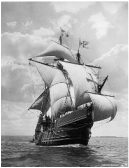
October 12, 1492, is the date when explorer Christopher Columbus (Genoa, 1451-1506) and his men set foot on the soil of the New World, the present day Bahamas, and claimed the land for Spain. Then they continued on to the islands of Cuba and Hispaniola (now Haiti and the Dominican Republic).
Even though U.S. President Benjamin Harrison issued a proclamation in 1892 to honor four hundred-year anniversary of Columbus’ landing in the Bahamas, it wasn’t a national holiday until 1937, when President Franklin D. Roosevelt declared it a legal federal holiday. I find it interesting that in quite a few Latin American countries, October 12 is celebrated as Día de la Raza. In the Bahamas it is called Discovery Day, Día de la Hispanidad and Fiesta Nacional in Spain, and as Día de las Américas in Uruguay.
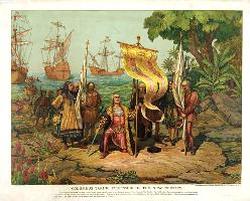
Well, not exactly. It depends on how you define the word “discover.” What about the Indians living there when Columbus landed? And what about Leif (The Lucky) Ericson (970-1020) the Norse explorer who is regarded as the first European to land in North America some 500 years before Columbus? There's no longer any debate about Leif the Lucky reaching Canada, and that's still North America.
Or how about the Jewish, the Chinese, the Egyptians, Scott Wolter, and everyone else on the History Channel? Every year there are new discoveries that have the potential of rewriting the history we're taught in school, and the ability to DNA test certain ancient finds may eventually be able to put to rest old myths and word of mouth stories and establish real evidence.
Leif Ericson Amerigo Vespucci Christopher Columbus
While it’s true that Columbus never set foot on what U.S. citizens consider “America,” he never claimed he had. The name “America” (bestowed on the New World) was derived from the name of explorer and cartographer Amerigo Vespucci (Florence, 1454-1512).
WHY DID VESPUCCI NAME THE NEW WORLD, AND NOT COLUMBUS?
That’s another ironic quirk of history. Vespucci didn’t name it, either. In fact, both Columbus and Vespucci believed what they discovered to be parts of Asia that, at that point, had not been explored by Europeans. Historians tell us that neither man had any concept of a new continent.
One source indicates Amerigo Vespucci was a merchant from Venice who owned a business in Spain outfitting ships for mercantile expeditions. Another claims he worked for Lorenzo de' Medici and was sent, in 1492, to work at the Seville, Spain branch of the Medici bank. According to that source, King Manual I of Portugal invited Vespucci to participate as observer in several exploratory voyages to the east coast of South America between 1499 and 1502. And, in fact, both versions might be correct.
However he got there, Vespucci accompanied those expeditions to South America and, as a result, wrote letters with glowing descriptions of the newly discovered countries which he called the lands of a "New World."
Vespucci’s letters were read by Martin Waldseemuller, a noted geographer, and Mathias Ringmann, who were preparing a reproduction of Ptolemy's treatise on geography. They decided to incorporate Vespucci's voyage into the treatise. Ringmann, acting as editor, was apparently unaware of Columbus’ discoveries fifteen years earlier and wrote the following in his introduction: “There is a fourth quarter of the world which Amerigo Vespucci has discovered and which for this reason we can call 'America' or the land of Americo."
Their work (entitled "Cosmographiae Introductio") was published in April, 1507, and marked the first time the word America appeared in print.
And this is sooo not what I learned in high school American History. Do we really know anything for sure?
According to Toby Lester, a contributing editor to The Atlantic and the author of The Fourth Part of the World, “History hasn’t served poor Matthias Ringmann nearly as well [as Martin Waldseemuller]. That doesn’t seem quite fair. So tonight let’s send up a few of our fireworks in honor of the man who had the audacity to declare, before anybody else, that the world had a fourth part—and to imagine that he might be the one who could give it a name.”
http://www.boston.com/bostonglobe/ideas/articles/2010/07/04/where_america_really_came_from/
DOES COLUMBUS GET THE CREDIT?
Stories have it that Columbus died broke and in jail, but for the most part, the history books give Columbus the credit for “discovering” the new world and opening up the Americas to European colonization. They also lay the blame for the negative impacts of his arrival in the Western Hemisphere. A double-edged sword.
He is also blamed for the destruction of the native peoples of the islands he explored, and he is labeled a racist, as were most of the aristocracy of that period. People have expended many words on extolling his successes and virtues and criticizing his faults and failures. There is plenty to read, if you want to explore those avenues.
ONE THING YOU CAN BE SURE OF
Regardless of who got here first and the "real" story, the fact is that Christopher Columbus' voyages changed the world from what it was in 1492. He opened a new era of trade and exploitation. And that's what we acknowledge on October 12.
Resources
http://www.ibiblio.org/expo/1492.exhibit/c-Columbus/columbus.html
http://www.earlyamerica.com/earlyamerica/bookmarks/americas_name/
http://www.answers.com/topic/columbus-day
http://www.boston.com/bostonglobe/ideas/articles/2010/07/04/where_america_really_came_from/
http://columbus-day.123holiday.net/christopher_columbus.html
http://blogs.tennessean.com/opinion/2010/10/05/why-is-columbus-day-celebrated/
http://www.encyclopedia.com/topic/Amerigo_Vespucci.aspx
http://www.absoluteastronomy.com/topics/Amerigo_Vespucci
http://www.theholidayzone.com/columbus/history.html
http://aglobalworld.com/holidays-around-the-world/discovery-puerto-rico-day-puerto-rico/
http://aglobalworld.com/holidays-around-the-world/bahamas-discovery-day/
□
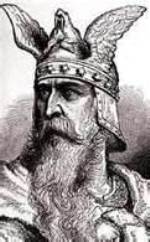
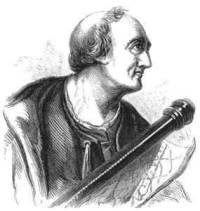
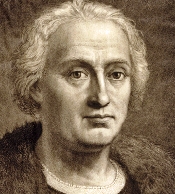
 RSS Feed
RSS Feed